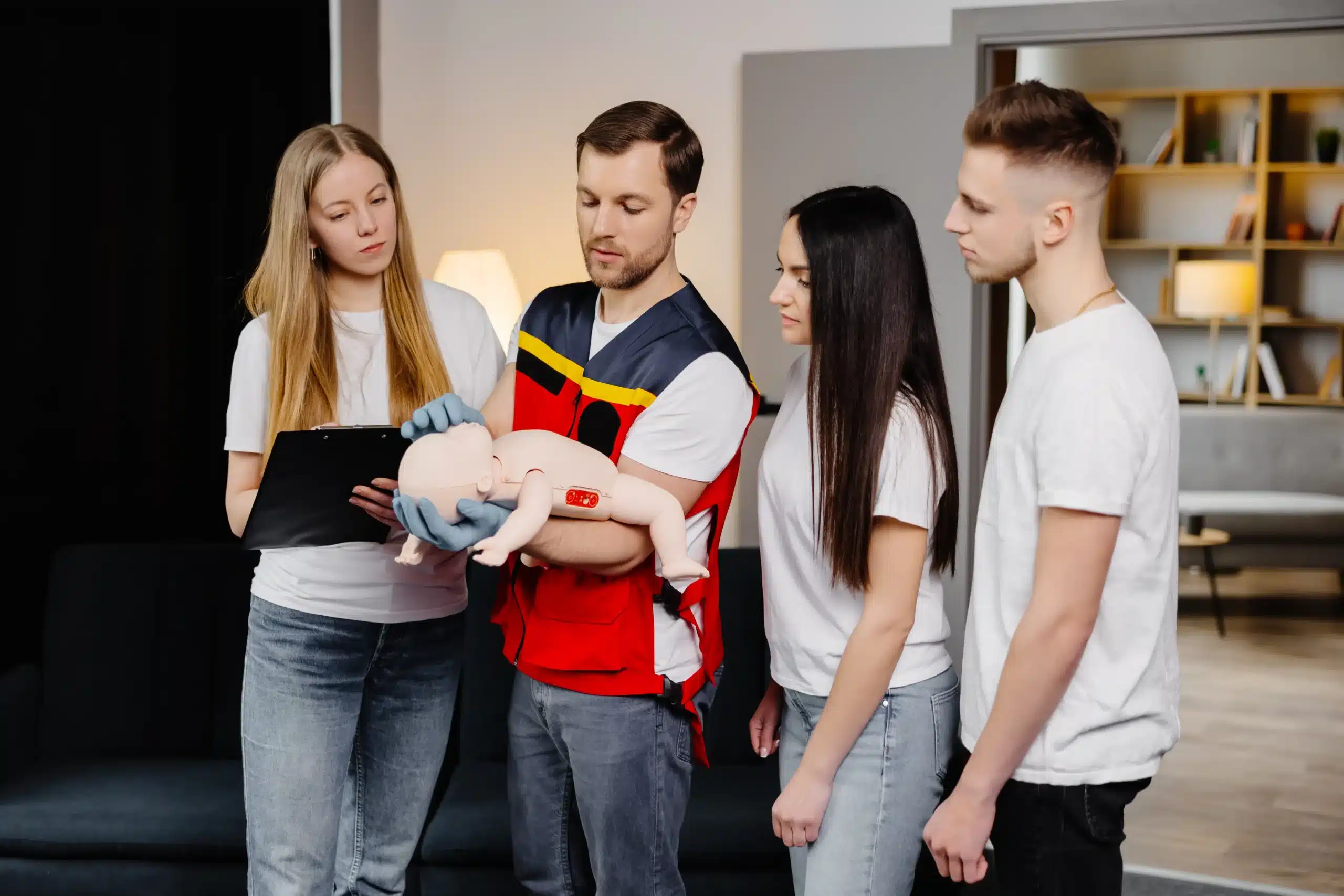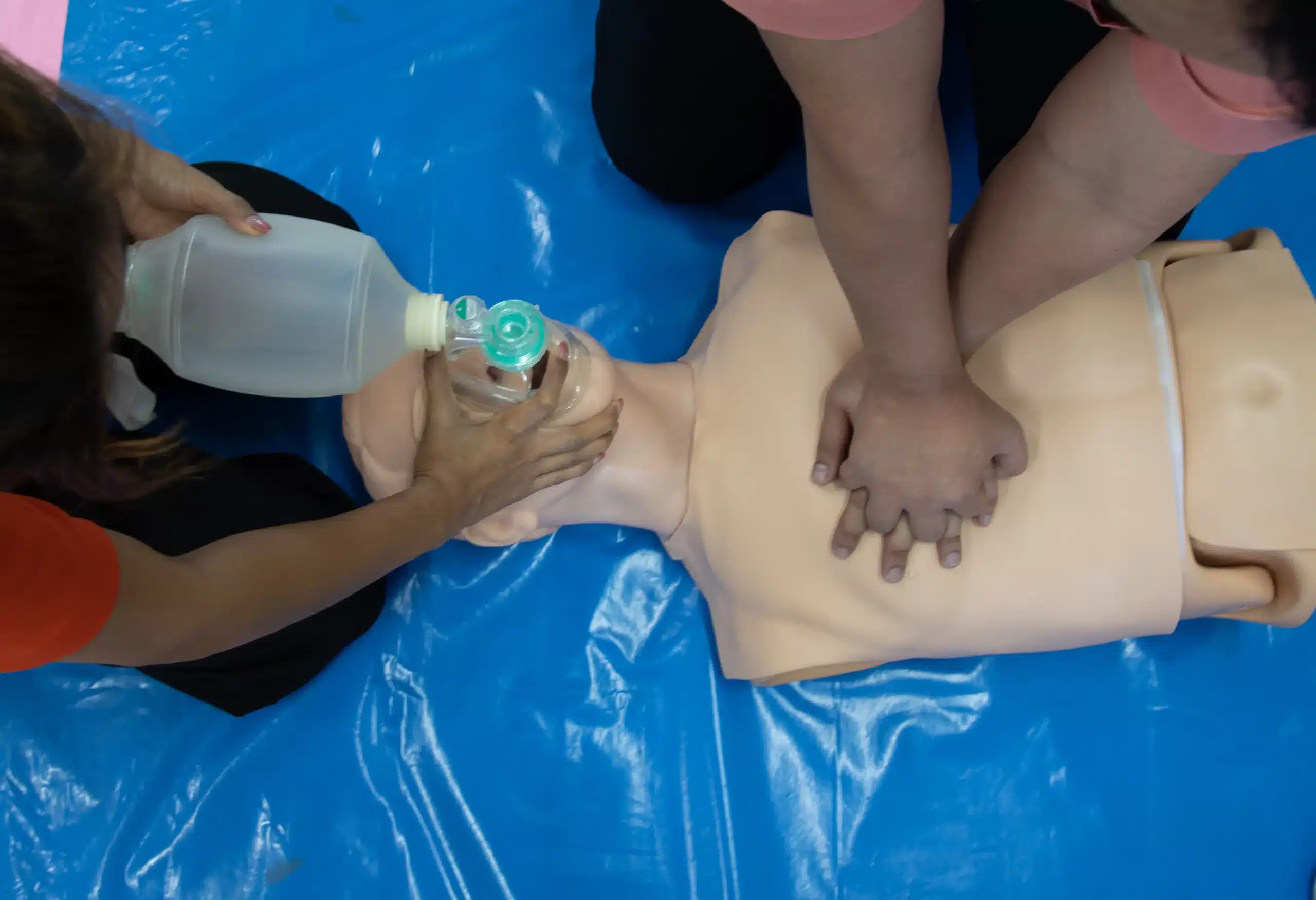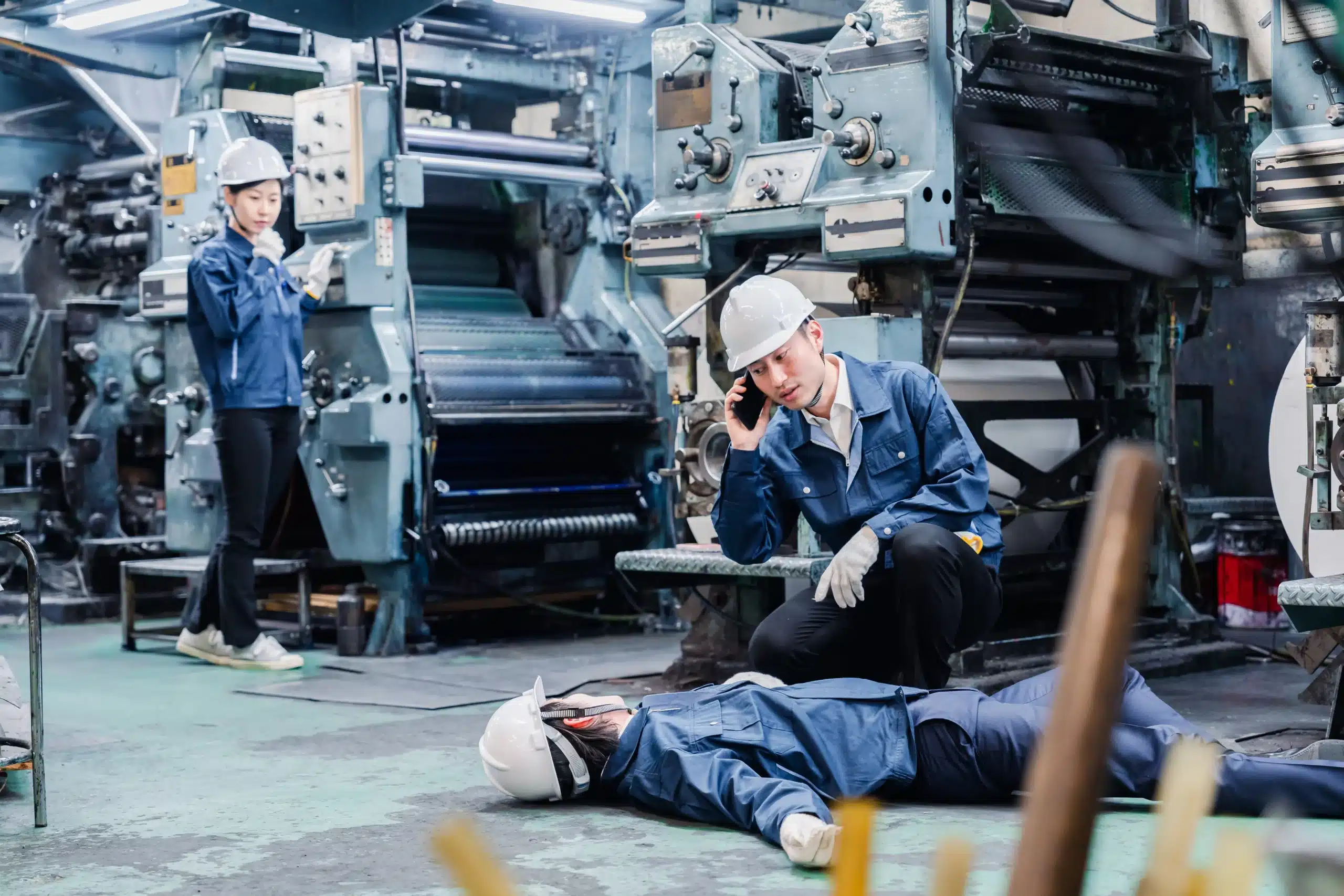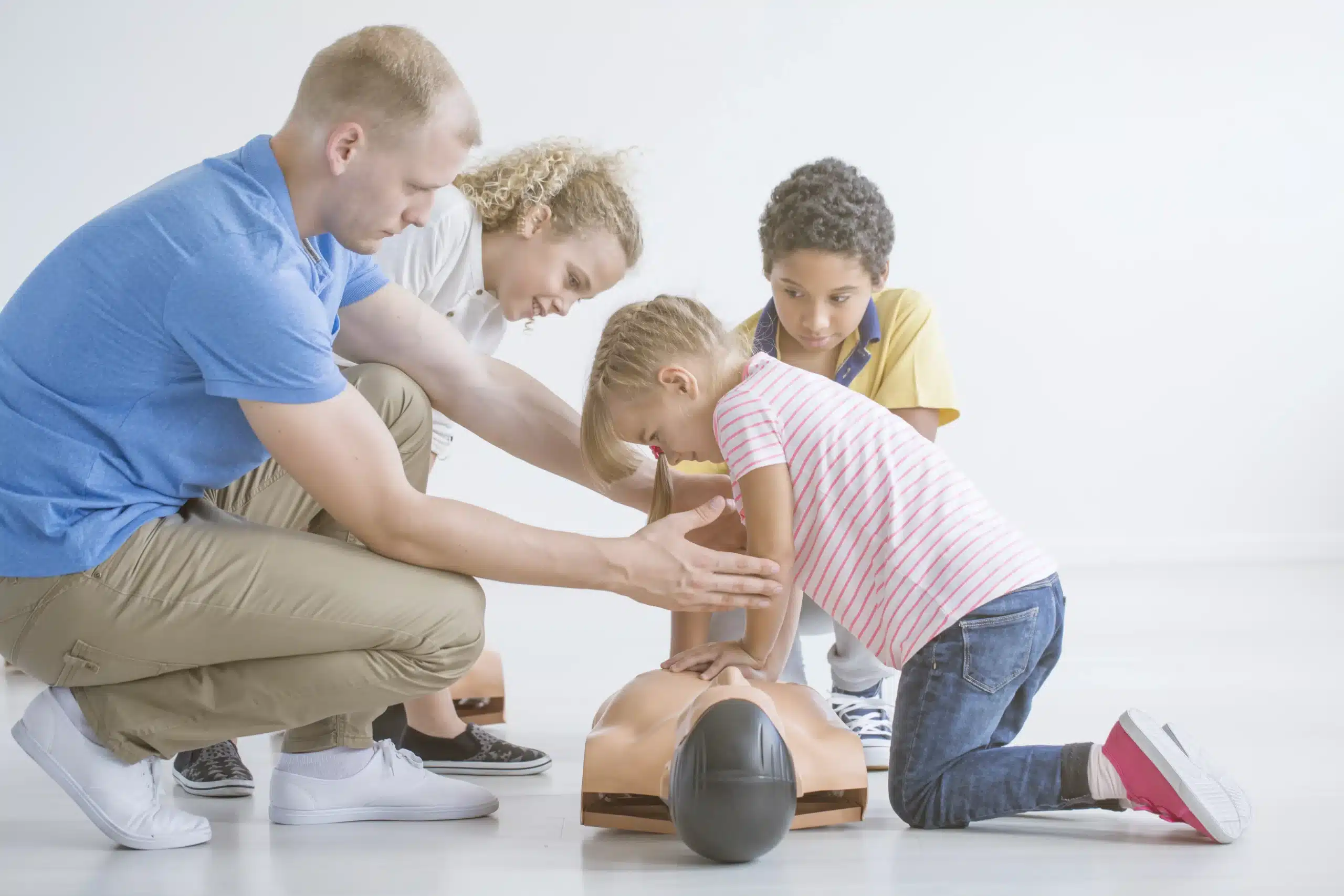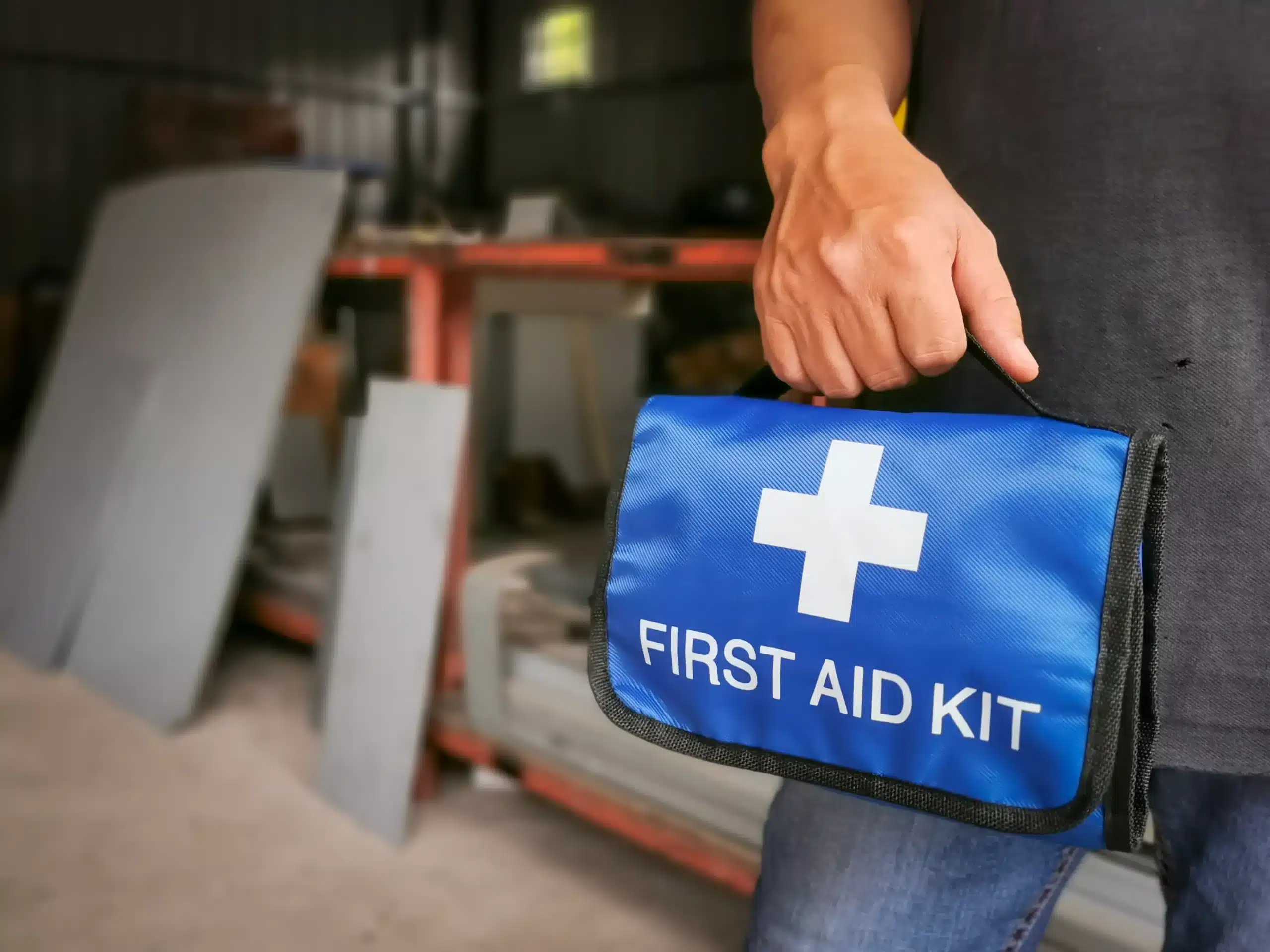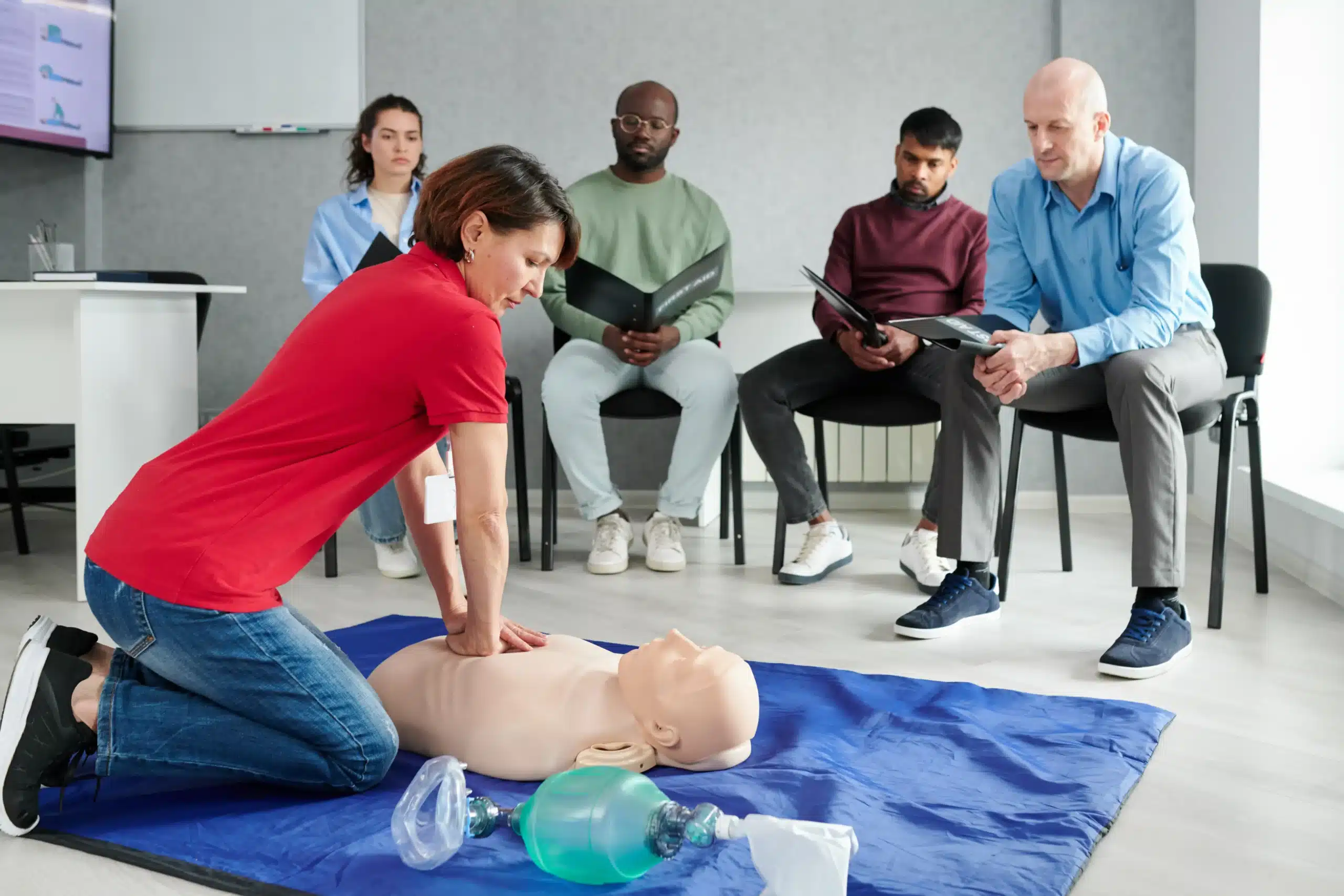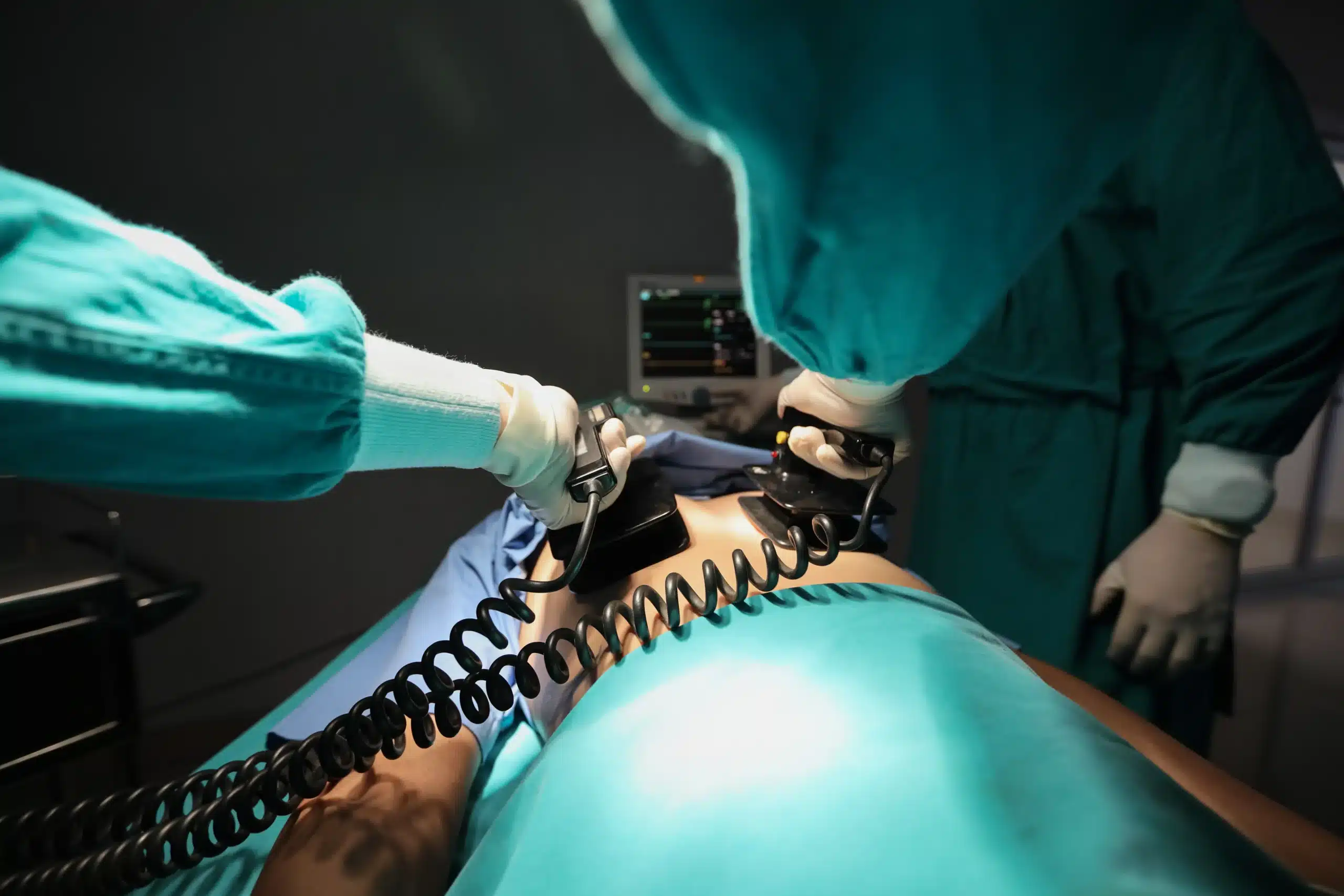Empowering yourself with CPR certification in Santa Clara means more than just adding a credential to your resume; it’s about gaining the skills and confidence to potentially save a life. This comprehensive guide explores the various CPR certification options available in Santa Clara, from basic life support to advanced cardiac care. We’ll delve into the specifics of BLS, ACLS, PALS, and First Aid certifications, discuss course costs and formats, and highlight reputable training providers like Sunnyvale CPR Classes. Whether you’re a healthcare professional, a community member, or simply want to be prepared, this guide will help you navigate the process of getting CPR certified in Santa Clara.
Key Takeaways
- Find the right CPR class for you: Santa Clara offers various CPR certifications, from basic community courses to advanced training for healthcare professionals. Explore options like BLS, ACLS, PALS, and first aid to match your specific needs.
- Understand CPR certification costs: Course prices depend on the type and format. In-person, blended learning, and online options are available. Research providers like Sunnyvale CPR Classes, known for their low-price guarantee, to find the best value.
- Stay current with your CPR skills: Regular practice and renewal are essential for maintaining your life-saving abilities. Consider refresher courses and advanced training to keep your skills sharp and up-to-date with the latest guidelines.
What is CPR Certification in Santa Clara?
CPR certification in Santa Clara gives you the skills to respond to cardiac emergencies. Organizations like the American Heart Association (AHA) offer a range of CPR courses designed for everyone from community members to healthcare professionals. These courses teach essential life-saving techniques, preparing you to act quickly and confidently in a crisis.
In Santa Clara, you’ll find CPR certification courses such as Basic Life Support (BLS), Advanced Cardiovascular Life Support (ACLS), and Pediatric Advanced Life Support (PALS). Each course meets different needs. BLS provides foundational CPR skills for anyone, while ACLS and PALS offer advanced training for healthcare providers. The hands-on training allows you to practice techniques in a safe and supportive environment. For a comprehensive overview, check out this guide to CPR classes in Santa Clara.
The RQI (Resuscitation Quality Improvement) program offers healthcare professionals an efficient way to maintain their skills and receive AHA certification cards for BLS, ACLS, and PALS. Getting CPR certified not only empowers you to help in emergencies but also strengthens our community’s ability to respond effectively to critical situations.
CPR Certification Courses: What Are Your Options?
Choosing the right CPR certification course depends on your individual needs and career goals. Here’s a breakdown of common CPR and first-aid certifications available in Santa Clara:
AHA Heartsaver® CPR/AED
The American Heart Association (AHA) Heartsaver® CPR/AED course is an excellent choice if you need to learn CPR and how to use an automated external defibrillator (AED). This course is often a requirement for teachers, coaches, fitness professionals, and other community members. The Santa Clara County Fire Department offers this course, sometimes as blended learning combining online coursework with in-person skills practice. Check with your local providers for current course offerings. You can find more information on CPR and AED training through the Santa Clara County Fire Department.
Basic Life Support (BLS) for Healthcare Providers
Healthcare providers, including doctors, nurses, and paramedics, typically need BLS certification. This course covers core life support skills for adults, children, and infants. BLS certification often includes training on using bag-mask devices and working as part of a resuscitation team. Local colleges, like Mission College, and organizations like Safety Training Seminars offer BLS courses.
Advanced Cardiovascular Life Support (ACLS)
For healthcare professionals who manage cardiovascular emergencies, ACLS certification is essential. This advanced course builds upon BLS skills and covers topics like airway management, ECG interpretation, and pharmacology related to cardiac arrest. Sunnyvale CPR Classes offers ACLS training for healthcare providers in the area.
Pediatric Advanced Life Support (PALS)
Healthcare providers who work with infants and children should consider PALS certification. This specialized course focuses on the unique needs of pediatric patients during emergencies. Organizations like Sunnyvale CPR Classes frequently offer PALS courses. The American Academy of Pediatrics provides further information on their PALS program.
First Aid & CPR
Combining first aid and CPR training creates a well-rounded skill set for responding to various emergencies. These courses cover everything from treating minor injuries to performing CPR. Many providers, including Sunnyvale CPR Classes, offer combined first aid and CPR courses.
Hands-Only CPR & Choking Relief
If you want a quick introduction to essential life-saving techniques, a Hands-Only CPR and choking relief class might be a good fit. These classes focus on high-quality chest compressions and basic choking rescue techniques. While not a certification course, this training empowers you to act confidently in an emergency. The Santa Clara County Fire Department is a good resource for these classes.
CPR Certification Costs in Santa Clara
CPR certification is an investment in your skills and ability to respond to emergencies. Understanding what influences course prices can help you make informed decisions.
What Affects Course Prices?
Several factors contribute to the overall cost of CPR certification. The type of course you choose plays a significant role. A basic CPR course for the general public will typically be less expensive than a more specialized course like ACLS (Advanced Cardiovascular Life Support) for healthcare providers. The course format also matters. In-person classes often include hands-on practice with certified instructors, which can affect pricing. Look for training providers offering a low price guarantee, ensuring you get the best value. Finally, consider factors like course materials, certification fees, and the training center’s location. Comparing these elements across different providers helps you find a course that fits your budget and learning style. Sunnyvale CPR Classes offers a range of courses, including CPR, First Aid, and BLS.
Typical Certification Costs
CPR certification costs in Santa Clara County vary depending on the provider and the certification level. Basic CPR and First Aid courses typically range from $75 to $125. More advanced certifications, such as BLS for healthcare providers, can range from $85 to $150. Specialized courses like ACLS and PALS are generally more expensive, reflecting the advanced skills required. Safety Training Seminars offers American Heart Association CPR, BLS, ACLS, and PALS courses in Santa Clara. Remember to check with your chosen provider for their most up-to-date pricing. Consider exploring options like discount group classes to potentially lower the cost.
The Value of CPR Certification
While cost is a factor, the value of CPR certification goes beyond the price. Learning CPR empowers you to respond effectively during medical emergencies, potentially saving a life. Around 350,000 cardiac arrests occur outside of hospitals each year. Knowing how to perform CPR and use an AED dramatically increases the chances of survival for someone experiencing sudden cardiac arrest. The skills and confidence you gain through certification can make a real difference. Consider the peace of mind that comes with knowing you’re prepared to handle a critical situation. This preparedness is invaluable, making CPR certification a worthwhile investment.
Register for a CPR Course in Santa Clara
Ready to learn CPR? Fantastic! Registering for a course in Santa Clara is straightforward. Here are a few ways to sign up:
Register Online
For ultimate convenience, register online. Sites like Eventbrite often list CPR course schedules, letting you compare available dates and times and register quickly. Check the Santa Clara County Fire Department’s website for their CPR and AED courses. Many organizations, including Safety Training Seminars, also post their schedules online.
Enroll In-Person
Prefer to register face-to-face? Many training centers offer on-site registration. For example, you can often enroll at locations like Bishop Ranch in nearby San Ramon. Contact your chosen provider to ask about their in-person registration process. CPR classes in Santa Clara are widely available, so finding a convenient location shouldn’t be difficult.
Group Registrations
Need to register a group? This is often easy to arrange. Many providers, including Safety Training Seminars, offer group discounts and simplified registration for businesses, schools, and community organizations. Resources like Bay Area CPR offer more information on group CPR training in Santa Clara.
CPR Course Duration and Format
Finding the right CPR course often depends on your schedule and learning style. Luckily, several options are available, from traditional in-person classes to blended learning and online programs. Let’s break down the different formats and how long each typically takes.
In-Person Training
In-person CPR training offers a hands-on learning experience in a traditional classroom setting. The American Heart Association (AHA) offers a Heartsaver® CPR/AED course which typically lasts about four hours. This comprehensive course covers CPR techniques and how to use an Automated External Defibrillator (AED). This format is ideal for those who thrive in a structured environment and benefit from direct interaction with an instructor. Sunnyvale CPR Classes offers these in-person courses, providing students with the knowledge and skills they need to respond confidently in emergencies. You can learn more about our low price guarantee on our website.
Blended Learning
Blended learning combines online learning with in-person skills practice. This format allows you to learn the course material at your own pace through online modules, typically requiring 2–3 hours of self-directed study. You’ll then attend a shorter, in-person session (usually around 30 minutes) to demonstrate your skills and receive feedback from a certified instructor. The AHA also offers a Heartsaver® CPR/AED blended learning course, providing a flexible option for those with busy schedules. Consider joining one of our discount group classes for an even more affordable option.
Online Certification
For healthcare professionals seeking a fully online certification, the RQI (Resuscitation Quality Improvement) program offers a convenient solution. RQI allows you to complete the coursework online and then schedule a skills test. RQI certification cards are often issued the same day as your skills check, streamlining the certification process. This format is particularly beneficial for busy professionals needing to maintain their credentials efficiently. Check out our website for more information on our available CPR courses.
RQI Program
The RQI program is a popular choice for healthcare providers seeking BLS, ACLS, and PALS certifications. It’s designed to enhance learning through online modules and regular skills assessments. This ongoing approach helps medical professionals maintain their skills and stay current with the latest resuscitation guidelines. Sunnyvale CPR Classes offers the RQI program, providing a convenient and effective way for healthcare workers in the Santa Clara area to meet their certification requirements. We also offer ACLS and BLS courses through the American Heart Association.
Choose the Right CPR Certification
Finding the right CPR certification boils down to understanding your needs and comparing available courses. Whether you’re a healthcare professional, a concerned parent, or simply want to be prepared, Santa Clara offers various CPR training options. Let’s break down how to choose the best fit.
Assess Your Needs
First, think about why you want CPR certification. Are you pursuing a healthcare career? Do you need it for your current job, or are you learning CPR for personal knowledge? Different professions require different levels of certification. For example, healthcare providers in Santa Clara typically need BLS certification, while teachers might choose a general CPR/AED course. Understanding your reasons will guide you toward the appropriate training.
Compare Courses
Once you know the certification level you need, compare specific courses. Look at what each course covers. Safety Training Seminars offers American Heart Association (AHA) courses, including CPR, BLS, ACLS, and PALS. These courses are widely recognized and accepted. Consider factors like course content, format (in-person, blended, or online), and schedule. If you’re a healthcare provider seeking comprehensive training, an AHA BLS course might be a good fit. If you’re a parent, a basic CPR/AED course could be sufficient. Santa Clara CPR Classes offers a range of AHA courses.
Certification Validity
Finally, understand how long your certification is valid. Most CPR certifications last for two years. Check with your employer or regulatory body to confirm their requirements. Knowing the validity period helps you plan for recertification and ensures your skills stay current. You should receive your certification card the day of the class.
Maintain Your CPR Certification
CPR certification isn’t a one-and-done deal. To truly be prepared to help in an emergency, staying current with your training and skills is essential. Think of it like any other important skill—regular practice keeps you sharp and ready to respond effectively.
Renew Your Certification
Most CPR certifications are valid for two years. Check your card to see your expiration date and be sure to renew before it lapses. Sunnyvale CPR Classes offers a variety of renewal courses to fit your schedule and make the process easy. Don’t let your skills expire—stay up-to-date and ready to make a difference.
Continuing Education
Even if your certification isn’t due for renewal, consider taking refresher courses or exploring advanced training. The medical field is constantly evolving, and staying informed about the latest techniques and best practices can significantly impact your ability to provide effective care. Think of your CPR training as a toolbox—you want to keep it stocked with the most current and effective tools. Explore our BLS CPR classes for healthcare providers to see our advanced training options.
Practice Your Skills
Regularly practicing your CPR skills is just as important as renewing your certification. Set aside time each month to review the steps and techniques. You can practice on a mannequin or even visualize the process. This consistent reinforcement will help you stay confident and prepared to act quickly and efficiently in a real emergency. Our CPR and first-aid classes in Sunnyvale emphasize hands-on practice to build muscle memory and confidence. Remember, consistent practice is key to maintaining your life-saving skills.
Benefits of CPR Certification
Knowing CPR can transform a scary moment into a life saved. It empowers you to act quickly and confidently during emergencies. This section explores how CPR certification benefits you personally, professionally, and makes a difference in the community.
Personal & Professional Advantages
CPR certification offers profound personal and professional advantages. Imagine the impact of knowing you have the skills to potentially save a loved one’s life. This training provides peace of mind, knowing you’re prepared for unexpected emergencies. Professionally, CPR certification can enhance your resume, demonstrating valuable skills and a commitment to safety. Many professions, from childcare to construction, require or highly recommend CPR training. Getting certified in CPR can open doors to new opportunities and increase your value in the workplace. It shows you’re someone who takes initiative and prioritizes the well-being of others. For those working with children, obtaining additional certifications like EMSA Child Care Health & Safety demonstrates a specialized understanding of pediatric care and emergency response.
Community Impact
CPR-trained individuals are vital assets to their communities. Each certified person strengthens the chain of survival, increasing the chances of someone surviving sudden cardiac arrest. When more people in a community know CPR, it creates a safer environment for everyone. These skills extend beyond responding to major medical emergencies. Knowing how to perform CPR and provide basic first aid can help with everyday situations like choking incidents or minor injuries. You become a resource for your neighbors, friends, and family, ready to assist when needed. Consider taking a CPR class with friends or family to build a network of support and preparedness within your own circle. This shared experience can create a stronger sense of community and empower everyone to respond effectively in times of need.
Healthcare Careers
For those in or pursuing healthcare careers, CPR certification is often mandatory and always beneficial. It’s a foundational skill that equips healthcare providers to respond effectively to cardiac emergencies. BLS certification from the American Heart Association is a common requirement for many healthcare roles, covering essential techniques and best practices for healthcare settings. Whether you’re a doctor, nurse, medical student, or aspiring healthcare professional, maintaining current CPR certification is crucial for providing high-quality patient care. It demonstrates your commitment to patient safety and your ability to handle critical situations. Furthermore, advanced certifications like ACLS and PALS build upon basic CPR skills, providing specialized training for managing complex cardiovascular and pediatric emergencies. For healthcare professionals seeking efficient renewal options, the RQI program offers a flexible and convenient way to maintain your BLS skills and certification.
Top CPR Certification Providers in Santa Clara
Finding the right CPR certification course means understanding your needs and researching available providers. Here’s a rundown of some reputable options in Santa Clara County:
Sunnyvale CPR Classes (Safety Training Seminars)
Sunnyvale CPR Classes, offered by Safety Training Seminars, provides American Heart Association BLS, ACLS, PALS, and CPR classes in Sunnyvale. Conveniently located near Palo Alto and Santa Clara, they offer a low-price guarantee for their courses. They also offer RQI training and discounts for groups. If you’re looking for CPR certification in Sunnyvale, this is a solid option.
Santa Clara County Fire Department
The Santa Clara County Fire Department (SCCFD) offers several CPR/AED training options. These include the AHA Heartsaver® CPR/AED Blended Learning Course, the AHA Heartsaver® CPR/AED 4-Hour In-Person Course, and a Hands-Only CPR/AED and Choking Relief class. Check the SCCFD website for program details.
American Red Cross
The American Red Cross offers a range of CPR and First Aid courses. They provide options for workplace training and community education, equipping individuals with essential emergency response skills.
Mission College
Mission College offers American Heart Association CPR certification (BLS/CPR) classes covering infant, child, and adult CPR. These courses are offered multiple times per semester.
Local Hospitals & Medical Centers
Many local hospitals and medical centers in Santa Clara County offer CPR training and certification. These courses often align with American Heart Association guidelines and may be tailored for healthcare professionals or the general public. Contact local hospitals and medical centers directly to learn about their offerings. For example, HealthForce Training Center provides CPR training and emphasizes the importance of these skills.
Prepare for Your CPR Course
So, you’ve decided to get CPR certified—fantastic! Knowing you’re taking a step to potentially save a life is empowering. This section will help you get ready for your upcoming course.
What to Expect
CPR courses in Santa Clara cater to a wide range of needs, from community members learning basic life support to healthcare providers pursuing advanced certifications. You’ll find courses covering everything from adult and child CPR to AED use and first aid. A good starting point for understanding the variety of courses available is this guide to CPR training in Santa Clara. No matter your background, there’s a course designed for you.
Certification Tips
Before your class, check the CPR class website for schedules and registration information. Direct links to course calendars are usually available, making signing up easy. You’ll receive your certification card the same day you complete the course. For those looking for a deal, consider asking about group discounts and learn together with friends, family, or colleagues!
Using Your Skills
CPR certification is more than just a credential; it’s a skill that can make a real difference. Reading stories of CPR successes can be incredibly inspiring and highlight the importance of your training. Knowing CPR and how to use an AED significantly increases your ability to help someone in a cardiac emergency. Consider refreshing your skills periodically with a renewal course like the RQI program to maintain your confidence and proficiency.
Related Articles
- CPR Certification in San Jose: A Practical Guide – Sunnyvale CPR Classes
- Sunnyvale CPR Classes: Your Complete Guide – Sunnyvale CPR
- BLS Certification in San Jose: The Ultimate Guide – Sunnyvale CPR Classes
- First Aid Certification Sunnyvale: A Complete Guide
Frequently Asked Questions
What is the difference between BLS and CPR?
CPR (Cardiopulmonary Resuscitation) is the specific technique used during cardiac arrest, involving chest compressions and rescue breaths. BLS (Basic Life Support) is a broader term encompassing CPR, AED use, and relief of choking. Think of CPR as one tool within the BLS toolkit. BLS certification is often required for healthcare providers and professional rescuers.
How long does CPR certification last?
CPR certifications typically remain valid for two years. Staying current with the latest guidelines and techniques is important, so renewing your certification before it expires is essential. Check your certification card for the exact expiration date.
How much does CPR certification cost in Santa Clara?
The cost varies depending on the course type and provider. Basic CPR/AED courses usually range from $75 to $125, while more advanced certifications like BLS, ACLS, and PALS are typically more expensive. Look for providers offering discounts, especially for group registrations.
What if I’m nervous about performing CPR in a real emergency?
It’s completely normal to feel apprehensive. CPR classes emphasize hands-on practice in a safe and supportive environment. This helps build muscle memory and confidence. Remember, any attempt at CPR is better than none. Your training will kick in when needed, and even basic CPR can significantly improve someone’s chances of survival.
How do I find a CPR class near me in Santa Clara?
Several resources can help you locate CPR classes in Santa Clara. Check online course directories like Eventbrite, search local training providers’ websites (like Sunnyvale CPR Classes or the Santa Clara County Fire Department), or contact nearby hospitals and community colleges. Many options are available, so finding a convenient class that fits your schedule should be easy.
